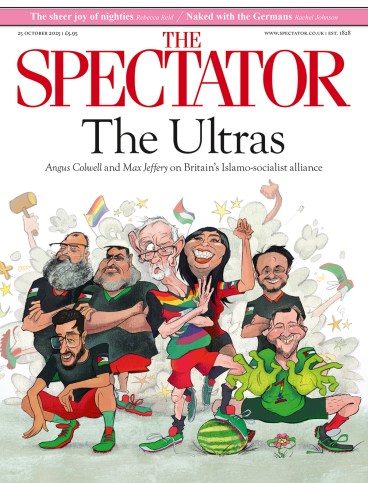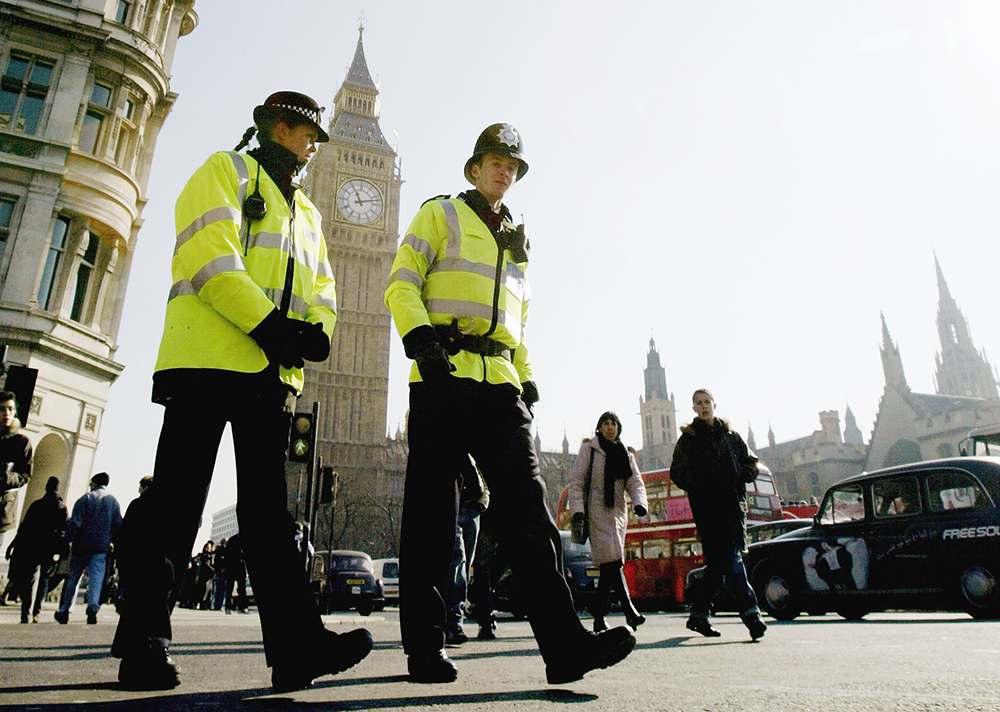
The congratulatory messages started pouring in shortly after 5.30 p.m. on Monday. The Metropolitan Police had just issued a press release saying that the force would no longer investigate ‘non-crime hate incidents’ (NCHIs) and people were chalking this up as a victory for the Free Speech Union, the organisation I run. That may seem a bit of a stretch, but the Met linked the decision to its failed pursuit of Graham Linehan, the comedy writer it arrested at Heathrow airport in September over three tweets taking the piss out of trans-rights activists. It was thanks in part to the FSU, which pulled together Graham’s legal team, that the Met decided to abandon the case.
In fact though, the person who deserves most of the credit is Sir Mark Rowley, the Metropolitan Police Commissioner. Not only is it his decision for the Met to stop investigating NCHIs, but last month he composed a letter to Home Secretary Shabana Mahmood – co-signed by Gavin Stephens, chair of the National Police Chiefs’ Council, and Sir Andy Marsh, CEO of the College of Policing – urging her to untangle the cat’s cradle of Home Office rules that have left police across the country with little room for manoeuvre when it comes to the investigation of ‘offensive’ social media posts and the recording of them as NCHIs.
In the view of Rowley and these other senior coppers, it’s because policing has become over-bureaucratised, with ‘guidance’ replacing common sense, that the police have got themselves into such a pickle.
Rowley’s defence of his officers’ decision to arrest Linehan – that Home Office rules, along with outdated incitement laws, had left them with little choice – was widely ridiculed at the time, including by me. After all, there are plenty of reported offences the police choose not to investigate, so why such little discretion when it comes to hurty words?
But having looked into it in more detail, I now think there’s something in what Rowley said. Guidance drawn up by the College of Policing and the Home Office requires the police to prioritise the investigation of ‘hate incidents’, mainly as an arse-covering exercise so senior officers and politicians can’t be accused of negligence if some horrific hate crime occurs on their watch. They’re haunted by the ghost of Stephen Lawrence, and the insistence that every complaint about a ‘hate incident’ is zealously followed up and recorded is their response to the 1999 Macpherson Report.
Politically, that probably made sense at the time – and even as recently as 2014, which is when the College of Policing came up with the concept of NCHIs (a ‘hate incident’ which turns out not to be a criminal offence but which should be logged for intelligence-gathering purposes). The explosion of social media since then, however, together with the emergence of easily triggered political zealots who report every online challenge as a ‘hate crime’, has left the police looking increasingly ridiculous.
The truly pernicious thing about NCHIs is that they can show up on your criminal record
The analogue guidance is unsuited to the digital age and it has led to at least 133,000 NCHIs being recorded in 11 years, requiring about 60,000 hours of annual police time. That’s 660,000 hours in total – time which the public would prefer to have been spent investigating actual crimes. Bear in mind that the police have failed to solve a single burglary in 48 per cent of neighbourhoods in England and Wales in the past three years.
But the truly pernicious thing about NCHIs – worse even than this colossal waste of time – is that they can show up on your criminal record if an enhanced DBS check is required as part of a job application. In other words, the fact that you’ve committed a ‘non-crime’ can prevent you from getting a job.
This is a breach of one of the fundamental principles of English common law – and a bulwark of British liberty: that unless something is explicitly prohibited, it is permitted. The behaviour recorded in NCHIs is, by definition, not prohibited by law – it’s non-criminal – yet people are being punished for it nevertheless. That’s indefensible.
So kudos to Rowley for announcing that the Met won’t be investigating ‘non-crimes’ any longer. His next move, I hope, will be to announce that NCHIs recorded by the Met will no longer be disclosable in enhanced DBS checks – and with luck, every other police force in the country will then follow his lead. If that happens, he deserves to have a statue of him erected alongside Sir Robert Peel in Parliament Square.








Comments